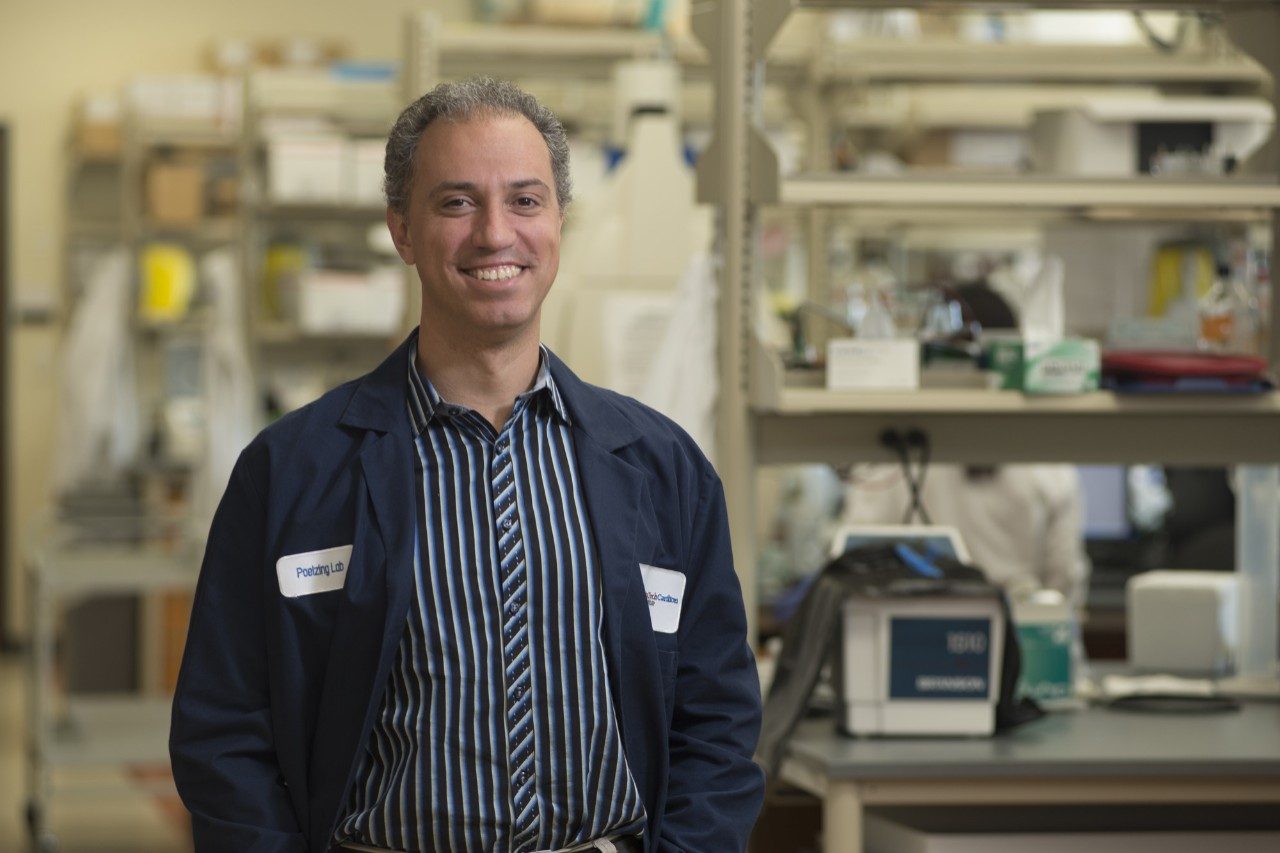VTCRI scientist awarded new federal grant to study cardiac conduction in health, disease
September 17th, 2018
Steven Poelzing, an associate professor at the Virginia Tech Carilion Research Institute, earned another grant from the National Heart, Lung, and Blood Institute to study how electrical conduction could be targeted as a treatment in cardiac diseases.

Steven Poelzing, an associate professor at the Virginia Tech Carilion Research Institute, has received a new five-year grant from the National Heart, Lung, and Blood Institute of the National Institutes of Health.
The grant will fund Poelzing’s research into a heart mutation, known as a gain-of-function mutation, that can lead to sudden cardiac death and other heart conditions.
“It’s a less common mutation, but more lethal,” said Poelzing, who is also an associate professor in the Department of Biomedical Engineering and Mechanics in Virginia Tech’s College of Engineering. “With this mutation, the channels between the heart cells remain active when they shouldn’t.”
This specific mutation is concealed through puberty, and only becomes obvious after critical events in adolescence or early adulthood, such as unexplained fainting, seizures, or near drownings, according to the National Heart, Lung, and Blood Institute. The mutation frequently underlies Long QT syndrome, which can be inherited or acquired. On an electrocardiogram reading, the length of time it takes for a heartbeat to drop from the peak to the baseline is referred to as QT. A long QT indicates an out-of-rhythm heartbeat.


